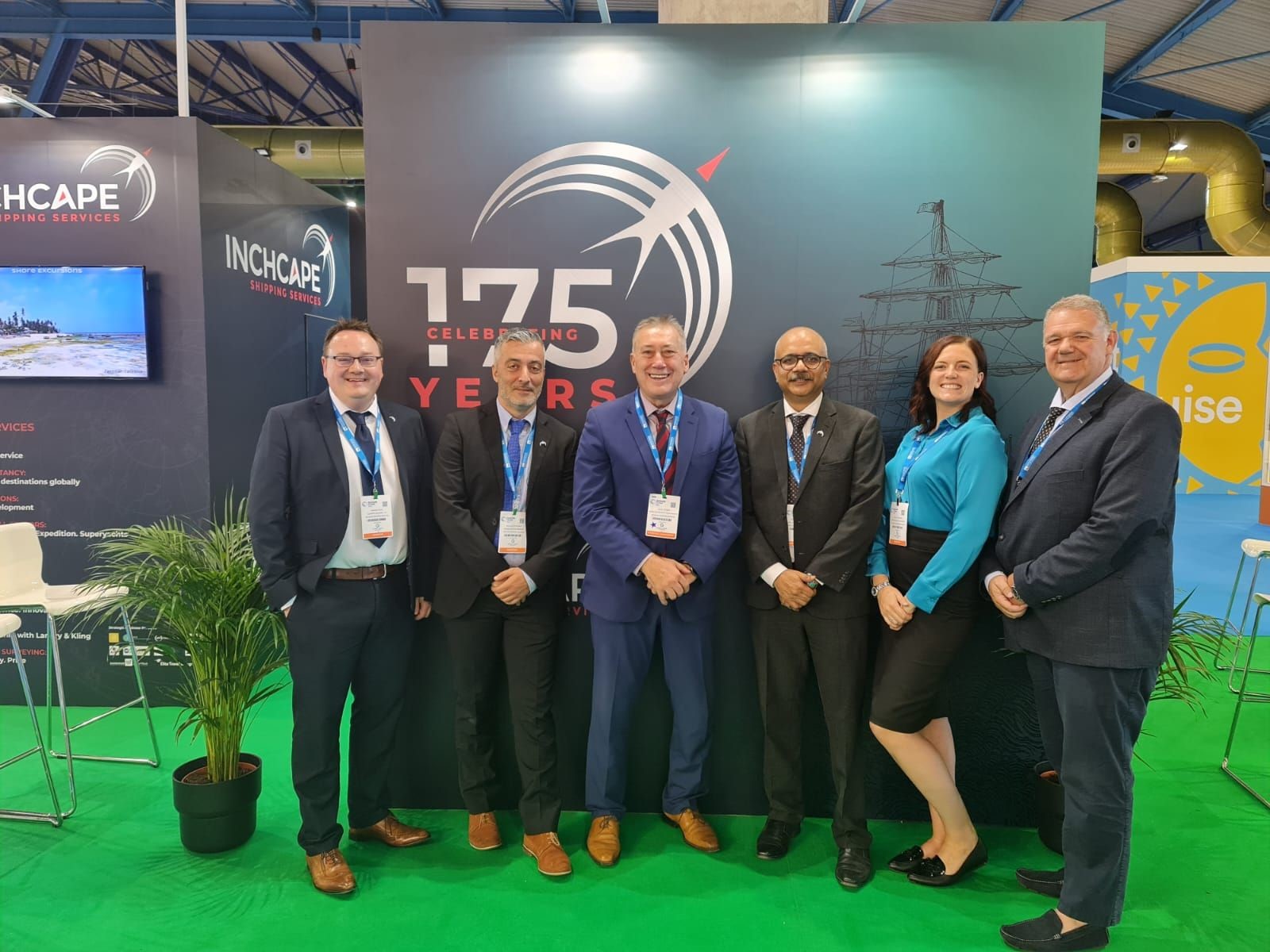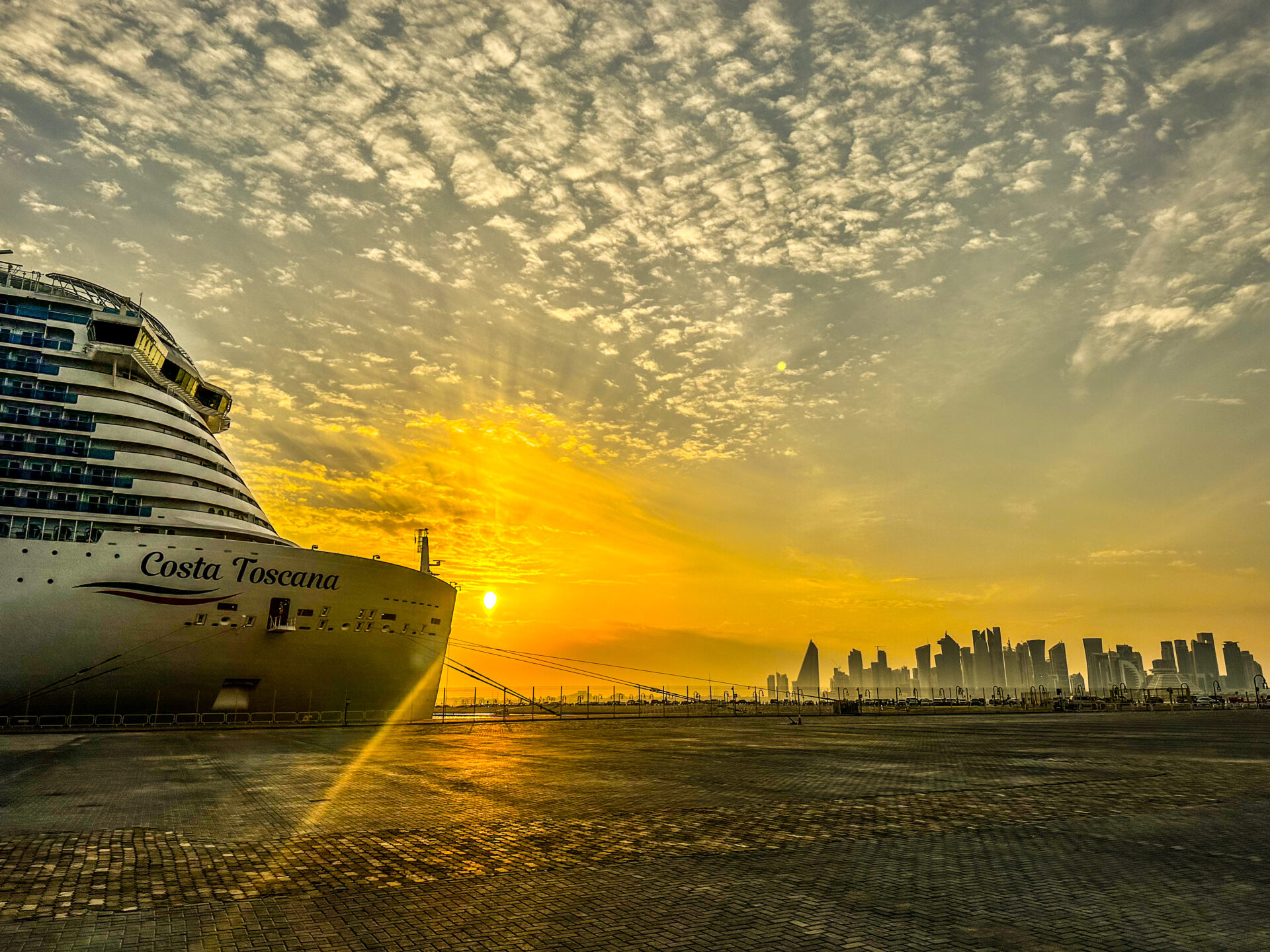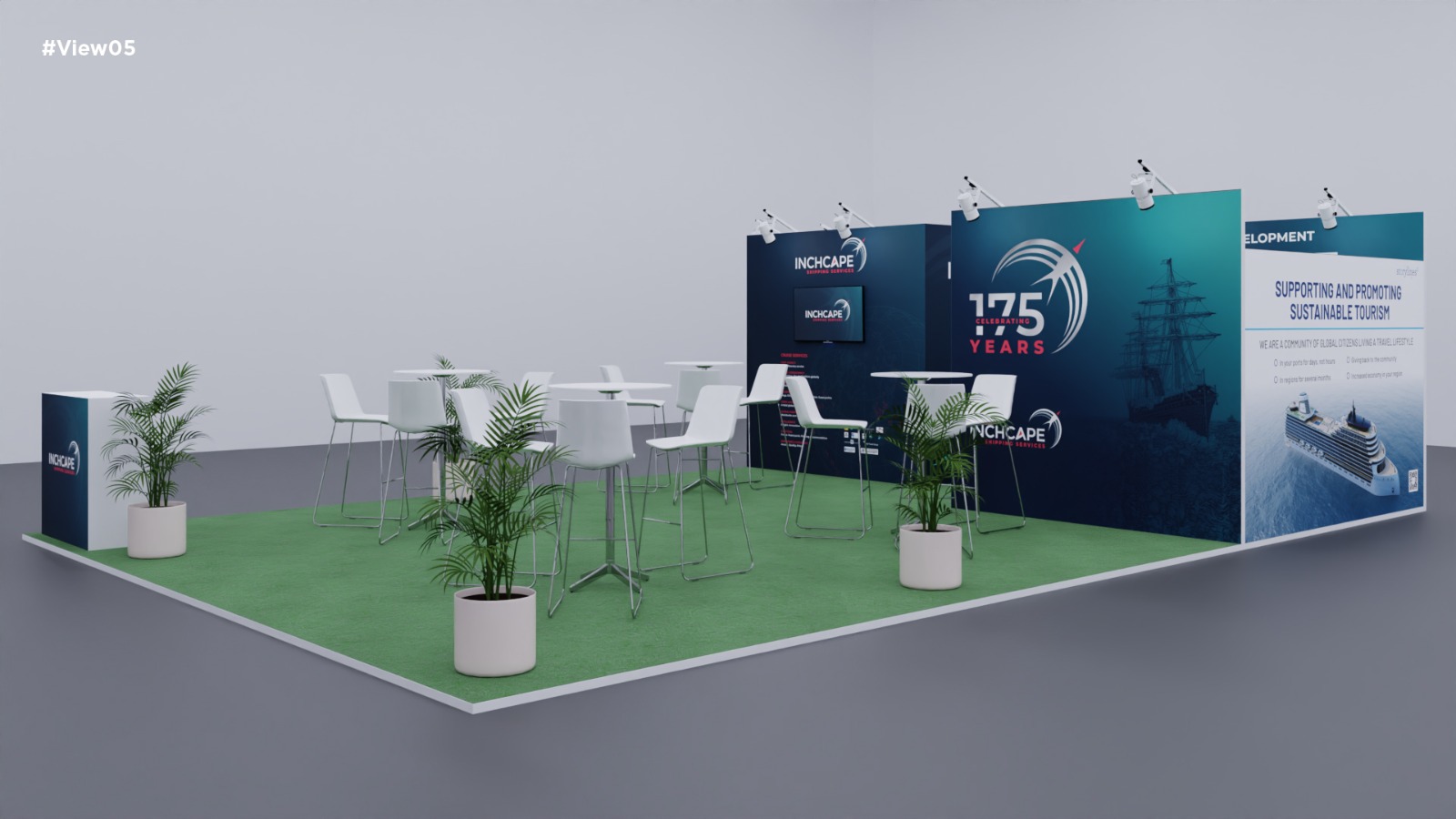The cruise industry is embarking on a voyage of discovery as new destinations in underexplored locations emerge onto the radar screens of operators, with Inchcape Shipping Services showing the way by developing alternative global itineraries for more sustainable cruise calls.
The leading provider of port agency services will have a high-profile presence at Seatrade Cruise Global in Fort Lauderdale, Florida later this month where its Global Vice President Cruise Solutions, Grant Holmes, will focus strongly on promoting emerging cruise markets.
The major conference and exhibition is a magnet for the world’s 80-plus cruise lines along with other industry players and Inchcape’s booth, staffed by company representatives from around the world, is set to be a busy hub of important discussions.
Holmes is primed for a three-day marathon of meetings with cruise operators, government officials and business partners as part of Inchcape’s efforts in cruise itinerary management – for which it now has a dedicated division serving 15 cruise lines – to address the pressing sustainability challenges caused by port congestion through better itinerary planning and developing new destinations.


New destinations in emerging markets
The globe-trotting cruise expert has been actively engaged in consulting work with Indian Ocean island countries, including Mauritius, Reunion, Madagascar, Comoros, Mayotte and Seychelles, along with Middle Eastern states such as Dubai, Oman, Qatar and Abu Dhabi, and other nations including the Bahamas and India.
“We are putting a lot of work into this and I would say we are at the forefront of helping emerging cruise destinations around the world,” he says.
Holmes believes new destinations need to be opened up for cruise passengers as demand rebounds post-pandemic because, as he says, “port congestion is actually a deployment problem as we have too many ships going to the same places at the same time of year”.
He sees 2023 as the year of recovery for the industry following the crisis year of 2020 when global lockdowns caused by the Covid-19 pandemic resulted in passengers and crews having to be repatriated, and cruise ships being put into lay-up as operations largely ground to a halt.
Even so, the wheels of business kept turning for Inchcape as it supported cruise lines with vaccine testing and protocols, which included setting up the world’s first vaccination programme for Cruise Industry crew in Dubai, while also handling repatriations, lay-ups and technical calls, as well as charters for migrants more recently.


Cruise call bookings on the rise
After getting through a year of transition in 2021, Inchcape saw the number of cruise port calls start to rise again with the reboot of industry activity last year, resulting in more calls in the final quarter of 2022 than the rest of the year, and this trend has continued into 2023.
Holmes says the number of cruise calls booked for Inchcape has reached around 6200 so far this year and is “growing fast by the day”, with the company hoping to reach the annual figure of 10,000 calls achieved pre-pandemic in 2019.
As part of its port agency offering, the company provides husbandry services for cruise ships, tapping into advantageous pricing for supplies with its extensive local networks of approved vendors, along with 24/7 crew logistics, ground handling, bunkering and surveying.
These services also extend to vessel charters for disaster relief, such as accommodation for refugees, under Inchcape’s partnership with Landry & Kling Global Ship Solutions.
Inchcape is more widely involved in the cruise experience for passengers by arranging shore excursions, managing itineraries and handling cruise charters for special events like the World Cup, while its destination development work has continued throughout the pandemic.
Global consultation work for sustainable itineraries
“We are now engaged in widespread consultations in different parts of the world to develop plans for sustainable ship and passenger capacity for each destination,” Holmes explains.
“This means that we calculate what should be the limit for the number of ships and passengers calling at a port on any given day to ensure it remains sustainable. In this way, everybody wins: guests have a better experience, there is less pressure on local resources and tourist attractions, and emissions in port are reduced significantly. The use of electric vehicles also enhances the sustainability of shore excursions.”
Inchcape’s consultation work with emerging markets is now bearing fruit, especially in the Middle East where new so-called marquee destinations for cruise megaships have been established.
A case in point is Dubai where new world-class cruise terminals at Port Rashid and Dubai Harbour are able to accommodate collectively nine mega ships at once in a sustainable manner. “Nowhere else in the world is expanding so rapidly,” Holmes says.
Similarly, the number of annual port calls in Qatar has increased from only three a few years ago to as many as 100 following study work by Inchcape, which also exclusively handled luxury cruise ships and superyachts that called there during the recent World Cup as the selected port agent of the Qatar World Cup Committee.
Holmes adds that Abu Dhabi cruise calls are also growing and Inchcape has recently won consultation work with Oman to develop a sustainable cruise tourism strategy for all segments, including superyachts, along its 3000 kilometres of coastline.
Shift in passenger demand, expanding fleet
He believes there is also great potential elsewhere, such as Indonesia where over 2000 ports of call spread across 17,500 islands typically receive just over 400,000 cruise passengers a year – about half the number of a busy Mediterranean port with hundreds of cruise ship calls annually.
A shift in passenger demand post-pandemic is now also influencing cruise itineraries, as well as higher fuel costs due to the war in Ukraine that have resulted in an increased focus on low-mileage cruises by operators, according to Holmes.
He says there has been strong growth in both the Luxury and Expedition cruise segments focused on more exotic and remote destinations, while the Discovery segment for mature guests is also doing well, though the Megaship segment plying popular tourist routes has understandably found it more challenging to fill capacity.
The global cruise fleet is set for renewed expansion over the coming years after 14 older and less fuel-efficient ships were retired during the pandemic, which Holmes believes has accelerated the sustainability of the industry given that incoming newbuilds will be more environmentally friendly.
A total of 51 newbuilds are set to be delivered in the period from 2023 to 2025, including 23 megaships, 18 luxury vessels and 10 expedition ships, to expand the existing cruise fleet of 471 ships after 26 new vessels entered into service last year.
Adapting to new fuel reality
He points out that 75% of the existing fleet is capable of running on sustainable marine fuels as these become available at scale and 41% of capacity is equipped for the use of shore power – way ahead of any other segment. Furthermore, 61% of newbuilds will be able to run on lower-carbon LNG as their primary propulsion system.
Paradoxically, though, he says the industry is facing new sustainability challenges as there is a lack of available LNG bunkering facilities at many cruise ports, which could limit available destinations for LNG-fuelled megaships – even though some are equipped with hybrid solutions to run on conventional marine fuel – and thereby exacerbate port congestion.
Similarly, there is a dearth of shore power facilities at ports due to the prohibitive cost of installation, despite the fact the use of shore power would be mandatory for cruise ships in the EU by 2030 under the proposed FuelEU Maritime directive.
Holmes says these factors reinforce the need for cruise itinerary management with capacity caps on alternative destinations, with Inchcape now also plotting new itineraries for LNG-fuelled cruise ships like Storylines.
Furthermore, Inchcape is seeking to expand its global network serving 850 cruise ports by pursuing exclusive relationships with strategically important business partners in response to demand for new destinations, while it has also forged a strategic partnership with yachting agency Acquera to grow its global business in the Superyacht segment.


Inchcape Shipping Services will be at the Seatrade Cruise Global Conference from 27-30 March. You are welcome to visit us at Stand 1229 or email jean.mancao@iss-shipping.com to arrange a meeting.